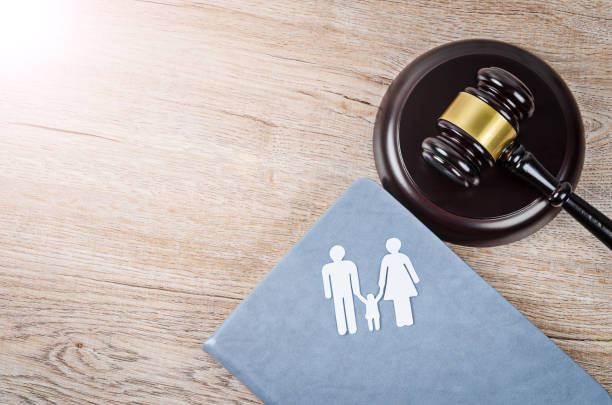International adoption in Australia generally involves adopting a child from overseas. Additionally, the adoption program or process depends on what state or territory the adopting parent lives in, and states and territory authorities also handle the application and adoption procedure.
Overseas Countries Where Australia Has Adoption Agreements With
According to Intercountry Adoption Australia, Australia has adoption agreements with:
- Bulgaria
- Chile
- China
- Colombia
- HongKong
- India
- Latvia
- Poland
- South Africa
- South Korea
- Sri Lanka
- Taiwan
- Thailand
Indeed, it’s never an easy process when a parent chooses to go for international adoption in Australia. Are there relevant laws that they should follow? Who are the people they should contact for support if they want to adopt someone legally? Continue reading this article to find out more about international adoption in Australia.
Who Can Help and Support In The Adoption Process?
Parents who want to go for international adoption in Australia can also request support for the entire process. This is because it’s a long and complex process that will also need adoptive families to attend education sessions and application reviews. Additionally, these departments also offer post-adoption support, supervision, and documentation.
Here are the following state or territory central authorities that handle international adoption in Australia.
- Australian Capital Territory – Child and Youth Protection Services
- New South Wales – Department of Communities and Justice
- Northern Territory – Department of Territory Families, Housing, and Communities
- Queensland – Department of Children, Youth Justice, and Multicultural Affairs
- South Australia – Department of Child Protection
- Tasmania – Department of Communities Tasmania
- Victoria – Department of Justice and Community Safety
- Western Australia – Department of Communities
What International Adoption in Australia Doesn’t Handle
Even if adopting parents have dual citizenship in an overseas country, there are types of overseas adoptions that don’t fall under Australia’s intercountry adoption arrangements. These are the expatriate and private adoptions.
Expatriate Adoption
Expatriate adoption usually involves an Australian resident or permanent resident living overseas adopting through overseas country agencies or government authorities. Because this occurs outside Australia, State and territory central authorities generally cannot help with this type of adoption.
Private Adoption
On the other hand, privately-funded fostering agencies handle private adoptions. State and territory central authorities cannot support private adoptions. Moreover, the foster child will also have to meet Australian immigration requirements, thus disabling them from entering Australia.
Additional Factors For Delays
Most of the time, it could take years for intercountry adoption in Australia to succeed. This is not uncommon. Here are other factors that may cause delays in international adoption.
- The number and characteristics of children needing intercountry adoption
- The number of applicants that partner countries has already received
- The age, needs, and any health issues of the child/children that the parent will adopt
- How long a partner country takes to process intercountry adoption applications
- If the adoption is in the best interest of the child or children

Section 111C of the Family Law Act
Section 111C of the Family Law Act 1975 talks about international agreements about adoption. Furthermore, it mentions the Convention on Protection of Children and Cooperation in Respect of Intercountry Adoption which was signed at the Hague on May 29, 1993.
Since August 9, 1994, Australia has been a part of the Hague Convention. This Convention upholds family and child protection from child trafficking concerns, and illegal parental abductions. This treaty ensures that internationally abducted children return to their habitual country at the soonest time possible. This Act also allows:
- Provisions necessary or convenient to give effect to intercountry adoption in Australia.
- Recognition of overseas laws regarding intercountry adoptions
- Undisturbed operation of state laws and regulations regarding adoption
- Other states and territories to make bilateral agreements and arrangements on behalf of other states and other territories
Contested Adoptions
It’s never safe to assume that there will not be any cancellations and delays during the adoption process. In some cases, the legal/birth family dispute against the adoption of their child which will leave the process at a standstill. Moreover, contested adoptions typically by way of private adoption cases but may still happen through international adoption in Australia. Some causes of contested intercountry adoptions include:
- One or both legal/biological parents failing to consent, waive, or surrender the termination of their parental rights
- A legal/biological parent challenging the prior termination of their parental rights
What Courts Will Consider in An Intercountry Adoption
Some parties involved in an adoption dispute usually resolve their matters outside of court. However, if mediation still fails, parties may go to court and resolve the case with a judge. Judges typically determine if parents are unfit to care for children if they:
1. Are too young or too old
Applicants must be over 21 years of age or at least 18 years older than children that they are adopting. This is because older people may have the risk of developing diseases that may hinder them from giving support to a foster child.
2. Are not an Australian resident
While being an Australian citizen is one of the common eligibility requirements for adoption, residency requirements vary from state to state. Hence, it’s important to get in touch with a lawyer if people want to know about the eligibility criteria regarding adoption.
3. Criminal history
One of the biggest factors in determining whether a person is qualified to adopt a child or not is if they have a criminal record. No matter what agency a person works with, all adoptive parents will undergo a comprehensive background check, and even go through an intercountry adoption program.
4. Finances
People don’t need a mountain of wealth in order to qualify as adoptive parents. But, they do have to show that they are debt-free and financially stable enough to provide for the basic needs of an adopted child. Furthermore, courts will also check if the adoptive families can also financially support themselves.
5. Lifestyle
Fortunately, most adoption agencies accept an adoptive parent who has a varied cultural background and lifestyle. Moreover, since April 2018, same-sex couples are legally allowed to adopt a child in all jurisdictions of Australia.
6. Best interests of the child
Importantly, adoptive parents should also check if adopting children is in the child’s best interests. When parents adopt a child, they should see if it harms them in any type of way. Lastly, if the adoption is not in the best interests of the child, the prospective adoptive parents should begin considering other options.

JB Solicitors’ Family Lawyers
As you have seen, we can never know how adoption services and procedures will work since every child and adoptive parents have a different and unique circumstance. These circumstances may affect the speed and results of the adoption procedure. If adoptive parents face legal disputes about the intercountry adoption process, they don’t always have to choose court procedures.
Instead, they may first get legal advice from JB Solicitors about international adoption in Australia. Our family lawyers can provide legal advice for the whole adoption procedure. Moreover, we provide other ways like mediation to settle family law matters outside of court.
Mediation is a method that will involve both parties to a case in reaching an amicable agreement about family law matters like adoption. Not only will this help settle the dispute with a customised solution, but it also gives financial support because of its less expensive costs.
Above all, contact a family lawyer today if you are prospective adoptive parents.
